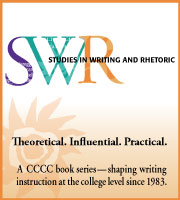Jared Johns: Case #1
Characterization of Institution
Research I University
Characterization of Department
Ph.D. granted in English (Literature)
Ph.D. granted in English (Linguistics)
Ph.D. granted in Rhetoric/Composition
M.F.A. granted in Creative Writing
M.A. granted in English
M.A. granted in Professional Writing
B.A. granted in English
B.A. in Secondary English Education
B.A. in Creative Writing
How would Jared Johns’ case turn out in your department? At your university/college?
Provided that Johns takes the advice and does publish some articles in refereed journals, the department primary committee would likely vote positively on his case when he came up for promotion with tenure in year 6. Likely result of case at university level: Expecially with the strong support from the outside evaluators, and provided that the department head and dean presented the case skillfully, explaining that Johns was hired for a very specifc purpose and that his profile was basically a new one for the department, he could–with a beefed-up publication record in recognized journals by his 6th year–get through the school and university committees.
What are the Department Chair’s responsibilities toward Johns? Which did she/he fulfill? Fail?
At the most basic level, the department needs to question whether–in light of their refusal to provide the necessary resources for technology–they should even have hired to fill this position. Certainly, Johns has, by virtue of his degree and previous publications, the appropriate qualifications for such a position; and by hiring him the department is tacitly indicating its support for the kind of work he is doing. But to bring him in without adequate resources to do the administrative part of his job, and even to appoint an untenured assistant professor (let alone a beginning one) to what is bound to be a touchy and potentially volatile administrative position, puts Johns in an almost untenable situation before he even begins. So the department head may have failed in leadership and made an inappropriate decision right from the start–and that was only compounded if he was not very forthright about what would be expected of Johns and some of the difficulties he was likely to face. Also, where is the director of composition in all of this? Certainly the writing course using the new technologies that Johns is assigned to teach should have been planned out and developed much more carefully, so that the technology could be integrated in a way that would support rather than dilute the main focus. Once Johns is on board (or ideally even before the position had been announced), the department head should have appointed a computer advisory committee; should have strongly advised Johns not to becme overcommitted to work on student committees–and, in fact, should have sought out other faculty to help share this burden; and should have taken it upon himself to answer the parent’s irate letter to the president, by explaining just what the philosophy behind error recognition/ correction of the writing program is, and how new pedagogies fit into this.
What are the Personnel Committee’s responsibilities toward Johns? Which did they fulfill? Fail?
In my department, the Personnel Committee is comprised of all full professors.
The committee really should have provided Johns with more feedback about his teaching and, particularly, his research progress much earlier on. Apparently, a couple senior faculty who were enthusiastic about the new tchnologies did observe his teaching and make suggestions, but they probably should have taken it upon themselves also to educate their colleagues, so that they would be better able to evaluate Johns’ work. Given the sparse knowledge about Johns’ specialization among the current faculty, this kind of “education” is an obligation if the contributon of new faculty is to be measured appropriately. Furthermore, in light of their own limited knowledge of the field, the committee should probably have been considerably more open to the assessments of the outside experts.
What are the responsibilities of the Dean? Which did she/he fulfill? Fail?
The Dean seems not to have a very good overall sense of the place of computer technology in the teaching and research missions of the school/college. The Dean should never have authorized filling the position without making certain that financial resources for both adequate (paid) staff and hardware and software were in place within the department to suppoort their computer facilitiy.
From discussion with Johns before he was appointed, the Dean should have ascertained what research support he would need personally and been convinced that the type of research he was engaged in fit with the mission of the school and could lead to tenure and promotion. At the very least, the dean’s office could make certain that computer sections of various courses were clearly designated, so that students would know when they enrolled; and the Dean should have worked to encourage, even if necessary designate, another faculty member to chair the computer-fee committee.
What are Johns’ responsibilities? Which did she/he fulfill? Fail?
Although prepared “academically,” Johns has not thought through clearly enough how to integrate computer technology into the introductory writing classroom so that it is non-threatening to the students and complementary to the major aims of the course. But he’s clearly working hard and shows signs of making the effort to do so by adjusting to course expectations–and, again, I would ask: where is the director of freshman cmposition in all of this?
Johns needs to be reassured, over and again, that he can say “no” to excessive demands on his time. And throughout it all, he needs to be made to feel comfortable being very up front and candid with his department head about the problems he is having and the things that he needs to help him succeed.
Given the nature of the department he entered and the mindset of most of his colleagues, he has to be receptive to their advice on finding more traditional refereed outlets for his research, at the same time that he helps educate them in the use of new media in teaching and unconventional research. But the “faults” are not primarily his.
What went wrong? What went right?
What went wrong? The culture of the department was really not prepared for the kind of hire it made; the infrastructure and suppoort system were not there–probably because the department got on the technology bandwagon without ever discussing the ramifications for pedagogy and scholarly research. Johns can’t be expected to take them “into the future” singlehandedly, which appears to be pretty much the case.
What went right? The department appears to have some notion of the need to mentor beginning faculty, though not much is in place to accomplish it properly. And they appear educable about new areas of specialization–at least they came around to supporting Johns, however marginally. But the task ahead is to make certain that, if Johns achieves promotion and tenure, he isn’t burned out and demoralized in the process.












